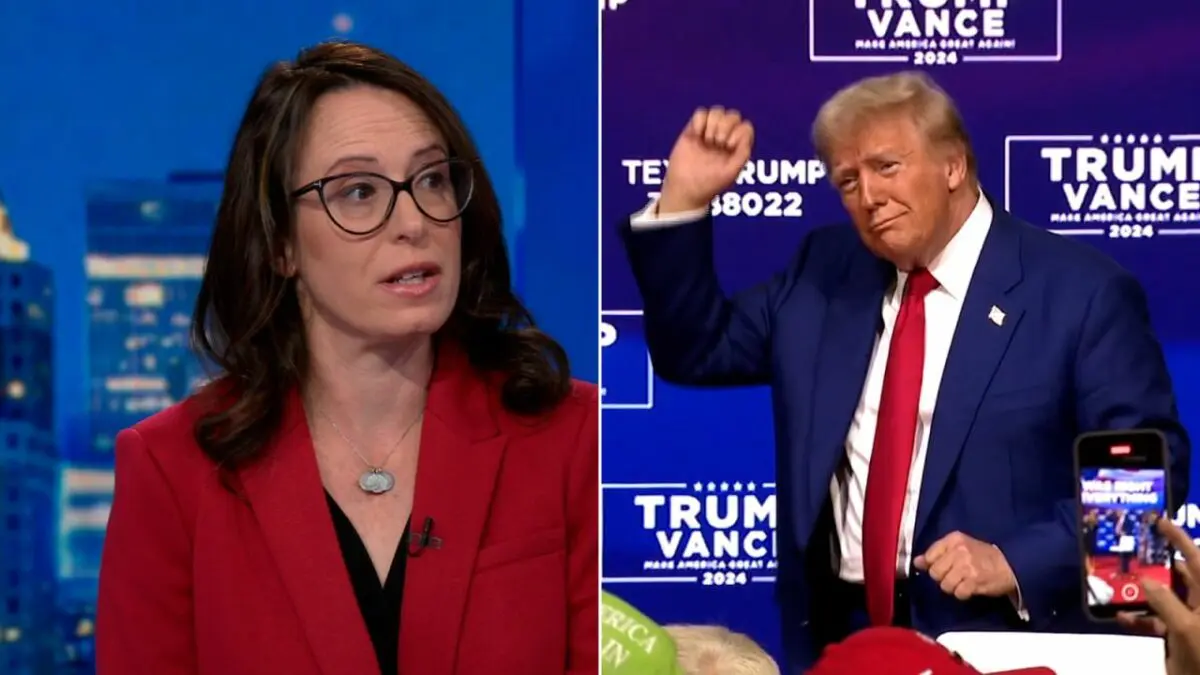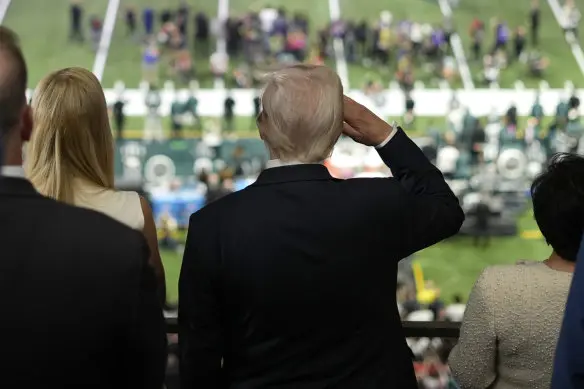President Donald Trump’s pre-game chat with Fox News’ Bret Baier is set to capture one of the largest live audiences he may see this year. Scheduled before the Super Bowl, this interview revives a long-standing tradition that blends politics and entertainment during America’s biggest sporting event. While Trump embraces this formal sit-down, many question the need for such a custom. After all, the first recorded instance of a president engaging with sports media dates back to Bill Clinton during the 1992 Super Bowl, a moment that was pivotal for his campaign. The evolution of these presidential interviews has shaped how we view the intersection of sports, media, and politics in contemporary America.
Understanding the Super Bowl Interview Tradition
In tracing the lineage of presidential interviews during the Super Bowl, George W. Bush broke new ground by speaking live prior to the game in 2004. His casual conversation with CBS sportscaster Jim Nantz offered viewers a glimpse of Bush the person—not just Bush the politician. This tradition has since evolved, with each subsequent president utilizing this platform to connect with a vast audience of over 100 million people. The question arises: why does a presidential interview before a football game resonate with so many? The significance lies in the cultural fabric of America, where sports and politics often intertwine, creating an opportunity for leaders to present their personas outside of the partisan arena.

The Origins of Presidential Interviews at the Super Bowl
The practice of having a presidential interview before the Super Bowl started to gain traction in 2009 when President Barack Obama took part in a live conversation with NBC. This 12-minute segment aimed to blend political questions with lighter, more personality-oriented inquiries, which contributed to Obama’s charismatic image. Such interviews provide candidates with a unique opportunity to define themselves and address the voters in a less charged atmosphere compared to traditional political broadcasts.
Trump’s Super Bowl Interviews: A Continuous Engagement
Donald Trump has continued participating in this pre-game tradition, making his quota of interviews while in office. His interactions during these segments have varied from casual conversations to more pointed discussions, particularly during politically charged times. The dynamics of these interviews can often dictate the narrative moving forward. For instance, his 2019 discussion with CBS News’ Margaret Brennan was a turning point in how the public perceived his documentation of actions during his presidency.
The Changing Landscape of Media and Interviews
The media landscape has changed drastically over the years. With the rise of social media platforms and rapid news cycles, the way that audiences consume information shifts constantly. President Joe Biden opted out of Super Bowl interviews during his latter days in office, perhaps indicating a perceived decline in their relevance. As the volume of available content increases, presidents must consider whether these appearances resonate or merely provide a fleeting moment.

Are Presidential Interviews Still Relevant?
Several factors contribute to the ongoing relevance of presidential interviews before the Super Bowl. For one, these occasions allow presidents to connect with a unique demographic. The Super Bowl attracts millions of viewers who may not typically engage with political content. This connection provides a chance for leaders to humanize their image while simultaneously addressing their agendas. However, the inherent risk lies in the fact that these segments can often be superficial—risking important discussions for the sake of entertainment.
The Impact of Trump’s Interviews on Public Perception
Trump’s frequent appearances before the Super Bowl tend to capture significant media attention. This brings us to the question of authenticity. While he promotes the idea of being candid, his style often blurs the lines between truth and rumor. During his pre-game interviews, critiques have arisen surrounding the accuracy of the statements made within these high-profile broadcasts. Observers point out that the trend toward ‘alternative facts’ has intensified during his presidency, often overshadowing the substance of these interviews.

Analyzing the Cultural Significance of these Interviews
Presidential interviews around the Super Bowl symbolize more than just political communication; they underline the dynamics of American culture. The portrayal of the president in such accessible formats brings politics into the homes of everyday Americans. The challenge lies in ensuring that substance isn’t sacrificed in the quest for entertainment. Each president approaches these interviews uniquely—and the ramifications of their messaging can resonate long after the camera turns off.
Final Thoughts on Tradition and Change
As we look to the future, the question remains: should the tradition of presidential interviews before the Super Bowl continue? For some, these moments represent an important merging of two pillars of American life—sports and politics. For others, the risks associated with misinformation and superficiality outweigh the benefits of this interaction. Whether one views this tradition as an opportunity or a concern, there’s no doubt that it encapsulates a fascinating blend of culture, media, and governance. The ongoing evolution of this practice will undoubtedly inform how we interpret the role of the presidency moving forward.
Source: www.msnbc.com
Hi there! I’m Jade, a 38-year-old gossip journalist with a passion for uncovering the juiciest stories in the world of celebrity news. With years of experience in the industry, I love sharing the latest trends and insider scoops.



